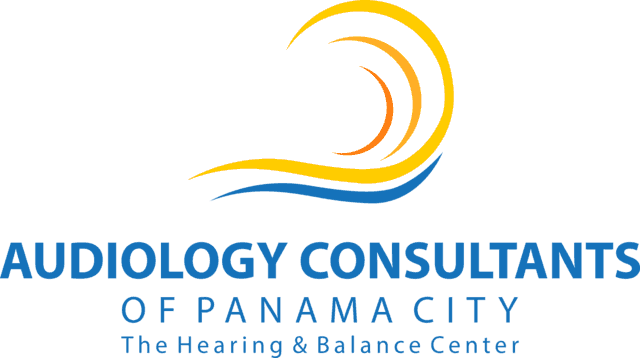- Steps to Coping with Chronic Dizziness - June 6, 2025
- Using Hearing Aid Accessories for Enhanced Listening - May 6, 2025
- Practical Tips for Managing Daily Challenges With Tinnitus - April 8, 2025
Vertigo and balance disorders are more common than you might think. These disorders can significantly impact your quality of life, leading to dizziness, nausea, and in some cases, falls and injuries.
While occasional moments of imbalance are usually no cause for concern, persistent or severe vertigo can be a sign of an underlying issue that requires medical attention. Let’s explore the causes, symptoms, and treatment options for vertigo and balance disorders.
The Basics of Vertigo and Balance Disorders
Vertigo is a sensation of spinning or dizziness that can occur suddenly and without warning. It is often associated with an inner ear problem, such as benign paroxysmal positional vertigo (BPPV), Meniere’s disease, or vestibular neuritis.
Balance disorders, on the other hand, refer to a range of conditions that affect a person’s ability to maintain stability and orientation.
Common Causes of Vertigo and Balance Disorders
Some of the common causes of balance disorders include:
- Inner Ear Issues: Problems with the inner ear, such as inflammation or the displacement of small crystals within the ear, can lead to vertigo.
- Vestibular Migraines: Migraines that include vertigo as a symptom can disrupt the body’s balance system.
- Medication Side Effects: Certain medications can cause dizziness and imbalance.
- Neurological Conditions: Conditions like multiple sclerosis or vestibular schwannoma can impact balance and coordination.
Recognizing the Symptoms
Symptoms of vertigo and balance disorders can vary in intensity and duration, depending on the underlying cause. Some common signs to watch out for include:
- Spinning Sensation: Feeling like the room is spinning around you.
- Nausea and Vomiting: Nausea and vomiting may accompany dizziness.
- Unsteadiness: Difficulty maintaining balance while standing or walking.
- Sensitivity to Motion: Discomfort or dizziness triggered by certain movements.
If you experience any of these symptoms regularly, it is essential to seek medical advice to determine the cause and explore treatment options.
Treatment and Management Strategies
The treatment of vertigo and balance disorders depends on the specific diagnosis and severity of the condition. Here are some common strategies that healthcare professionals may recommend:
- Vestibular Rehabilitation: This type of physical therapy focuses on exercises and activities designed to improve balance and reduce dizziness. It involves a customized program of exercises that aim to retrain the brain to recognize and process signals from the vestibular system.
- Medication: Prescription medications may be recommended to alleviate symptoms of vertigo and associated nausea. These medications can include anti-vertigo drugs, anti-nausea medications, or other relevant pharmaceutical interventions.
- Lifestyle Modifications: Making certain changes in daily routines and habits can help manage vertigo and balance disorders. Healthcare professionals may advise on avoiding triggers such as caffeine, alcohol, and stress, which can exacerbate symptoms. Additionally, maintaining good hydration and regular sleep patterns may also be beneficial.
- Canalith Repositioning Maneuvers: Specifically for benign paroxysmal positional vertigo (BPPV), healthcare providers may perform canalith repositioning maneuvers (e.g., Epley maneuver) to help reposition displaced ear crystals within the inner ear, providing relief from symptoms.
- Surgical Interventions: In cases where the underlying cause of vertigo or imbalance is due to a structural issue, surgical procedures may be necessary. This may include interventions such as vestibular nerve section, endolymphatic sac decompression, or other surgical options tailored to the specific diagnosis.
The Role of Hearing Health Professionals
Given the close connection between the inner ear and balance, a hearing health professional specializing in vestibular and balance disorders can help you manage and diagnose balance disorders. We can evaluate the vestibular system and perform tests to assess balance function and inner ear health.
By seeking help from a hearing health professional, individuals with vertigo and balance disorders can receive personalized care tailored to their specific needs. We offer guidance on lifestyle adjustments, recommend appropriate treatments, and provide ongoing support to improve overall well-being.
Prioritizing Your Hearing Health and Balance
Vertigo and balance disorders can have a significant impact on your daily life. Understanding the symptoms, causes, and available treatment options is the first step toward managing these often debilitating conditions.
If you or a loved one are experiencing symptoms of vertigo or balance issues, do not hesitate to reach out to a hearing health professional for guidance. Early intervention and proper management can make a world of difference in improving quality of life and reducing the impact of vertigo and balance disorders.
Remember, your hearing health is important, and seeking help is the key to finding relief and regaining control over your balance and stability. Take the first step towards better health today and schedule a consultation with a hearing health professional. Your well-being is worth it.


